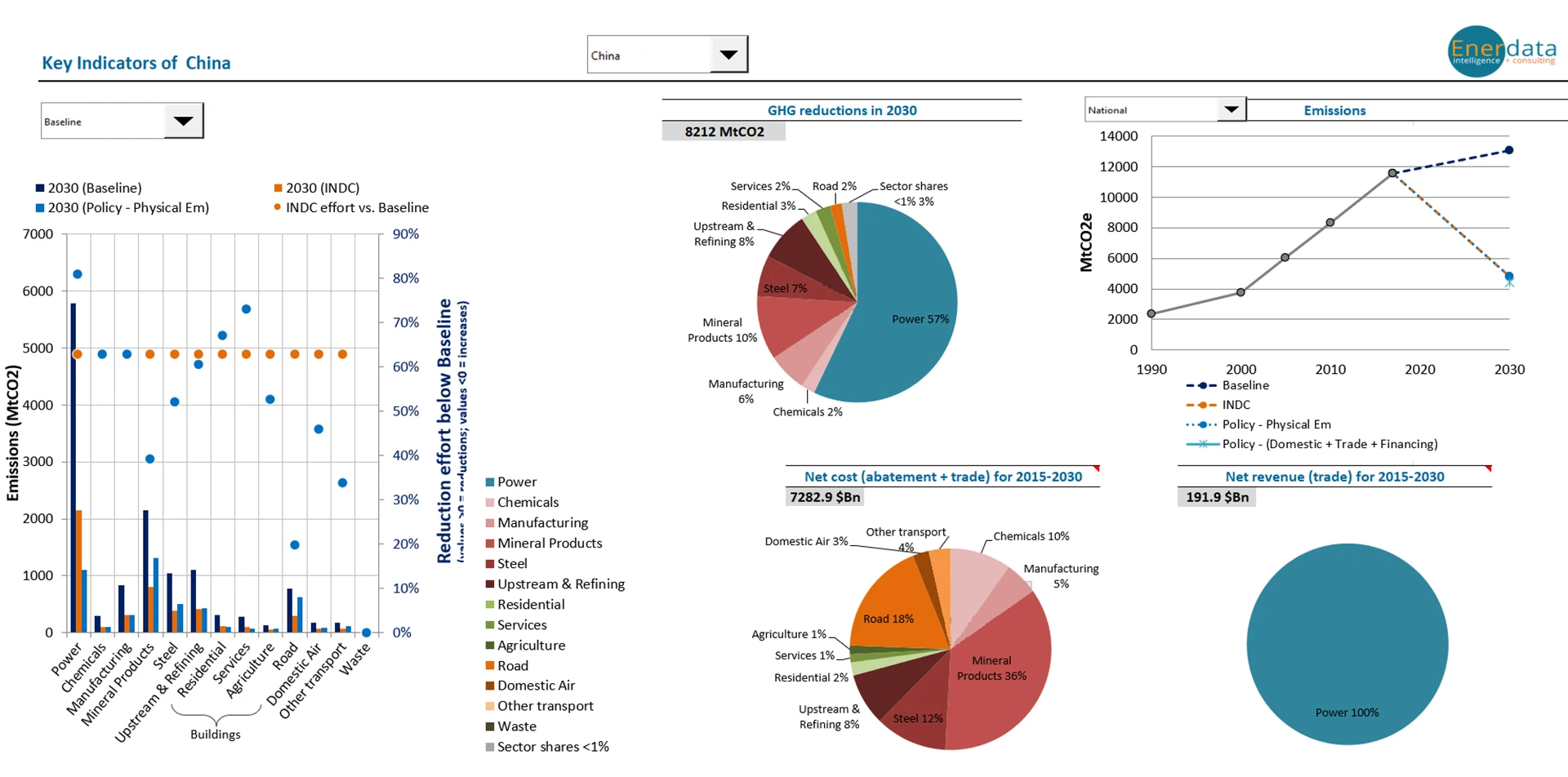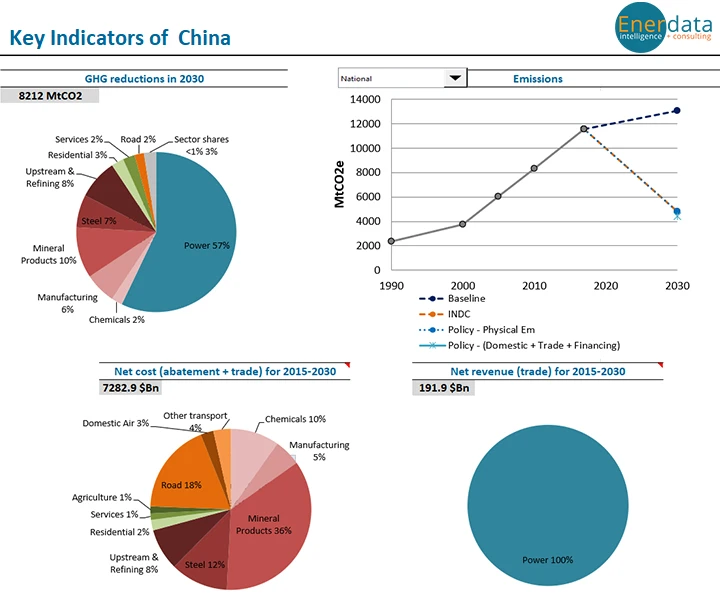EVALUATE is a tool designed to facilitate climate policy design in the framework of international climate change negotiations, specifically related to countries’ commitment targets (based on sectoral marginal abatement costs). EVALUATE is able to effectively support negotiations and improve understanding of contributing countries ambitions, quantify emission reductions as well as estimate costs and trade volumes by sector for different countries.
Overall, EVALUATE enables to quickly assess the country and sectoral-level impacts from carbon permit trading (national and international), carbon taxes, regulations and climate finance.
- Coverage:
- G20 countries (could be adapted to POLES 66 countries and regions)
- 10 sectors covering industry, energy, buildings, agriculture and transport
- Target year: 2030 (could be adapted to any target year between 2020 and 2050)
- 6 greenhouse gases: CO2, CH4, N2O, SF6, PFCs and HFCs
- 5 sectoral policy instruments: carbon market (ETS), carbon tax, regulation, international finance, no policy
- Tabular and graphical visualisation of results
- Applications:
- Assessing cost-efficient sectoral policies to achieve mitigation pledges
- Quantifying the resulting gap with national target and contribution at global level
- Estimating total abatement costs, carbon values and emission reductions for each sector
- Quantifying credit traded volumes and costs for domestic and international ETS
EVALUATE is based on the POLES model and the marginal abatement cost curves (MACCs) generated from its long-term energy scenarios. This version of the EVALUATE model was produced by Enerdata’s Global Energy Forecasting team (including the Excel-based tool and MACCs) and has been financially supported by the World Bank, for the Government of Brazil.
Since the Conference of the Parties in Copenhagen, Denmark (COP 15), Enerdata has continuously developed and refined its approaches to modelling carbon permit trading. The Danish Energy Agency has financially supported these developments, as well as provided valuable input on the types of issues and market mechanisms relevant to climate negotiations.
The EVALUATE model offers a comprehensive decision support to parties involved in emissions reduction strategies, both in mitigation levels and the corresponding economics impacts. It allows an in-depth understanding of countries pledges such as INDCs, and offers the possibility for the user to easily define the policy mix (including carbon taxes, trading schemes, international financing, etc.) to be implemented sector by sector, in order to achieve the economic optimum related to the fulfilment of a country’s reduction objective.
For all these items, EVALUATE provides the associated abatement costs, as well as further economic and other key performance indicators, by country and by sector.
Evaluate key country indicators

References
EVALUATE is used by the World Bank (Washington) and Brazilian Government:
- Official presentation made by the WB (Christophe de Gouvello) at PMR Technical Workshop 15: Post-2020 Mitigation Scenarios & Carbon Pricing Modelling (Brasília) - Session 10
- WB/Enerdata side-event on “Quantifying the Impact of NDCs on Carbon Prices and sectors” at Carbon Expo 2016 (Cologne)
- Official presentation made by the EU with GLOCAF and CMT results.
Related Products & Solutions
AERO: Abatement Effort, emissions Reduction Options
Assessment of emissions reduction options for different climate / energy scenarios.
Granular Energy Demand Forecast
Unique, independent projections of consumption by end-use.
 Energy and Climate Databases
Energy and Climate Databases Market Analysis
Market Analysis